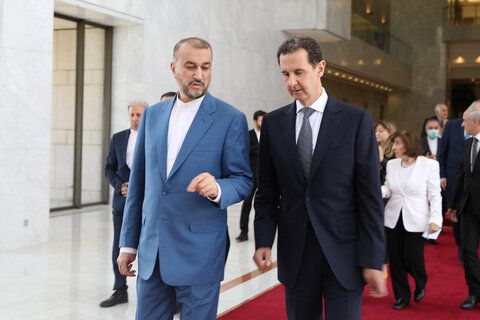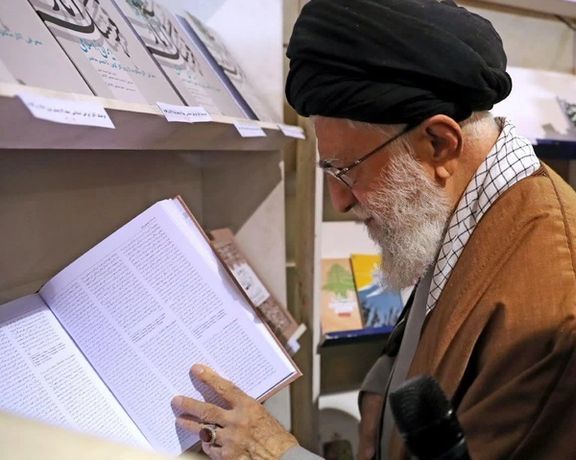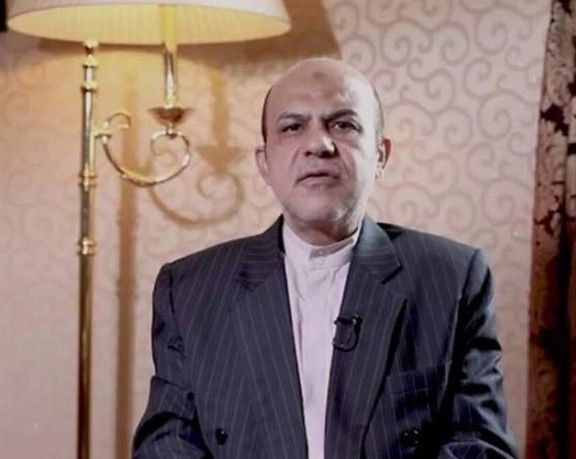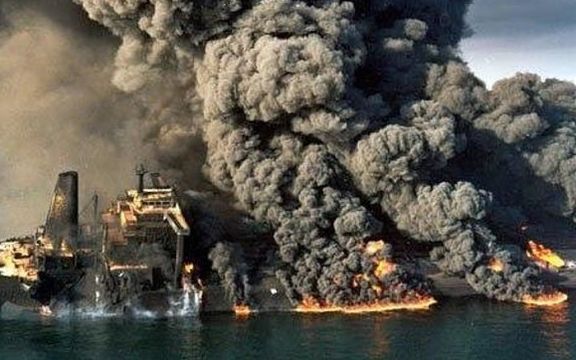British Police Arrest Man After Uranium Sent To UK-Based Iranians

An unnamed British businessman has been arrested on suspicion of terrorism over an alleged attempt to import a deadly uranium package into the UK.

An unnamed British businessman has been arrested on suspicion of terrorism over an alleged attempt to import a deadly uranium package into the UK.
The arrest comes after a very small amount of radioactive material was discovered by police on a package that arrived in Britain on December 29.
The package, which was reported to have originated in Pakistan, arrived at Heathrow airport on a flight from Oman. It was thought to have been sent to British-based Iranians, say the British media.
Although there is no public evidence of Iran being involved, some believe that whoever sent it might be testing weak points in British safeguards.
The 60-year-old suspect was apprehended in Cheshire in northwest England on Saturday and then released on bail, the Metropolitan Police said Sunday.
Met Counter Terrorism Commander Richard Smith stressed that there appears to be no direct threat to the public.
“The discovery of what was a very small amount of uranium within a package at Heathrow Airport is clearly of concern, but it shows the effectiveness of the procedures and checks in place with our partners to detect this type of material,” Smith said, adding “there is no linked direct threat to the public.”
Highly enriched uranium can be used to make a nuclear bomb, but the Met statement did not specify the uranium’s intended use.
Some experts told the media the uranium found is likely too inefficient to be used for bomb-making.

An Iranian American imprisoned in Iran for more than seven years appealed to US President Joe Biden on Monday to bring him home and said he was starting a seven-day hunger strike.
Siamak Namazi made the plea in a letter to Biden seven years to the day that Iran released five other US citizens in a prisoner exchange choreographed to coincide with the implementation of the 2015 Iran nuclear deal.
"When the Obama Administration unconscionably left me in peril and freed the other American citizens Iran held hostage on January 16, 2016, the US Government promised my family to have me safely home within weeks," Namazi, 51, said in the letter to Biden released by his lawyer, Jared Genser.
"Yet seven years and two presidents later, I remain caged in Tehran's notorious Evin prison," he added.
Namazi asked Biden to spend one minute a day for the next week thinking about the suffering of US citizens detained in Iran, who include environmentalist Morad Tahbaz, 67, who also has British nationality, and businessman Emad Shargi, 58.
Namazi and others have been detained on trumped-up charges in what seems to be Iran's long history of arresting foreigners as hostages.
Namazi, whose father was allowed to leave Iran in October for medical treatment after being detained on espionage-related charges rejected by Washington, said he would be on a hunger strike for the same seven days.
Asked for comment, a White House national security council spokesperson told Reuters the government was committed to securing Namazi's freedom.

Tehran has told Damascus it has to pay a higher price for Iranian oil upfront that so far it supplied cheap to its ally, The Wall Street Journal reported Sunday.
In an exclusive report WSJ said that according to its sources, Tehran finding itself in a financial crunch and facing antigovernment protests, has asked the Bashar al-Assad government to pay around $70 per barrel of crude from now on. The move shows that Iran’s clerical regime finding itself in a political and economic crisis might be losing its leverage over regional allies such as Syria.
While the reported Iranian move might indeed be the result of its budget shortage and falling currency, Syria has been involved in a Russian-backed process to mend fences with Turkey, occupying part of the country’s north, without Iran’s participation. Tehran played a key role in saving the Syrian regime from its opponents in the 12-year-old civil war.
Iran, however, continues its public rhetoric in support of Syria and the Lebanese Hezbollah. During his trip to the two countries this week, foreign minister Hossein Amir-Abdollahian repeated offers of fuel and other assistance.
Iran by some estimates has spent more than $30 billion over the last decade to support Assad’s regime, in addition to tens of billions in assistance to Hezbollah and the Houthi rebels in Yemen. This has led to anger among Iranians who suffer from high inflation and declining living standards. Calls for ending the government’s regional interventions have echoed during protests in the past five years.

The Islamic Republic has announced its intention to change the content of textbooks in foreign language schools after criticism by Iran’s ruler Ali Khamenei.
Head of Non-Governmental Schools and Centers Ahmad Mahmoudzadeh told ILNA Sunday that “We will have a call to produce content of language books for schools, which will be implemented in line with the order of the Supreme Leader.”
"Language books that have nothing to do with our culture will be discarded," he added.
Changing the content of textbooks based on the government's propaganda policies has been implemented in the last few years upon the order of Supreme Leader Ali Khamenei. However, this is the first time that these changes will be applied to the language teaching books of private institutes.
Ali Khamenei had earlier criticized teaching English in general, saying in 2016 that "now we have reached to a point that English language learning has been extended to kindergartens".
Following his comments, ministry of education put a ban on teaching English at primary schools.
English is not included in Iran's official curriculum during the six years of primary school, but various non-governmental and a small part of public schools teach students English as extra-curricular subject, and these classes are not mandatory.
In recent years, some government officials have also suggested that instead of English, the teaching of Russian, Chinese and German languages should be supported in Iran.

Iran's Minister of Tourism and Cultural Heritage, Ezzatollah Zarghami has expressed concern over the execution of British-Iranian national Alireza Akbari.
Akbari, a former high-ranking defense official was accused by the regime of espionage for the United Kingdom.
Zarghami in a tweet on Saturday called for an investigation into Akbari's "change of behavior", saying that "I am worried about the repetition of this process." He did not say that he believes Akbari was innocent, something that would endanger his own security.
He added that "Alireza Akbari's fate was a bitter experience for the establishment" because he had "70 months of service" in the Iran-Iraq war.
Iran announced Akbari’s execution on Saturday, after sentencing the former Iranian deputy defense minister to death for espionage.
Akbari, also served as an advisor to the Secretary of Iran's Supreme National Security Council (SNSC) Ali Shamkhani.
A source close to the Islamic Revolutionary Guard Corps has provided information to Iran International showing that accusations against Akbari and his death sentence were aimed at weakening Shamkhani’s position in the clerical regime. It seems that President Ebrahim Raisi, Intelligence Minister Esmail Khatib and Interior Minister Ahmad Vahidi are exerting pressure to remove Shamkhani from the post.
The execution of Akbari was met with a wave of international condemnations, and Britain sanctioned Iran's Prosecutor General Mohammad Jafar Montazeri hours after Akbari’s execution was announced.
Britain called the execution a barbaric act, a sentiment echoed by the United States, France, Germany and Canada.

Two years after launching a case in Washington, law firm Herischi & Associates have announced a complaint in the British Maritime Court over the Sanchi tanker disaster.
Herischi & Associates, who are based in Bethesda, Maryland, say they have taken a case in the United Kingdom against the National Iranian Tanker Company (NITC), and against insurers for NITC and the Sanchi. The Panamanian-flagged, Iranian-owned tanker caught fire in January 2018 after colliding in the East China Sea, 530km south east of Shanghai, with a Hong-Kong registered Chinese cargo ship, the CF Crystal.
While the 21-strong Chinese crew were rescued, Iran announced that all 30 crew members on the Sanchi – 30 Iranians and two Bangladeshis - had died due to explosions, fire, and release of noxious gases resulting from a volatile 136,000-tonne cargo of natural-gas condensate.
But in a press release to publicize its latest case, Herischi & Associates claimed that the crewmen successfully left the ship, that the Sanchi was carrying a “secret cargo to be delivered secretly to North Korea,” and that 22 crew were alive in Iranian custody “weeks after the accident.” The press release gave no indication of what the secret cargo was.
Letter from Kim Jun Un
The law firm said it had discovered all this through gaining access to emails and recordings of Iranian officials, “volunteered sensitive information” from Iranian security forces, as well as “top secret Iranian documents” including a message from Revolutionary Guards intelligence to Iran’s Supreme Leader Ali Khamenei. Herischi & Associates even claimed to have a letter from North Korean leader Kim Jung Un to Iranian supreme leader Ali Khamenei “thanking him for delivery of the cargo and his sadness [sic] for the accident.”
Iran at the time announced that the Sanchi was sailing from Asaluyeh, Bushehr province, southern Iran, to South Korea. Nader Pasandeh, a senior official at Iran’s Ports and Maritime Organization, told reporters that the Crystal had caused the collision through human error.
But in early 2019, Iranian media carried reports of family members protesting outside the foreign ministry, the Chinese embassy and the presidential office. Relatives told Shargh, Hamshahri and other newspapers that they had received telephone calls, broken off as soon as answered, from sailor relatives who had been on the Sanchi. Mohammad Mehdi Boroumandi, who chaired a government committee into the disaster, said claims “about the Sanchi crew being taken hostage” were “based on hearsay,” while parliament member Mohammad Reza Kouchi called for an investigation into hoax calls.
‘Undisclosed location’
In December 2019, Herischi filed a lawsuit in a district court in Washington DC against the ‘National Iranian Tanker Company’ and named officials on behalf of families of ten crewmembers of the Sanchi. According to the law firm’s press release at that time, the families alleged “the crew of the Sanchi were seized after the collision” and had “been held in detention for nearly two years in an undisclosed location.” Herischi cited “the key piece of evidence” as “multiple phone calls…made from crewmembers’ cellphones to their relatives in the months following the ship’s destruction.”
In October 2020, Herischi announced thy were seeking over $1 billion damages for US citizens who lost relatives when a Ukrainian passenger airliner bound for Kyiv was January 2020 shot down over Tehran by a mobile missile launcher during high tensions with the US.